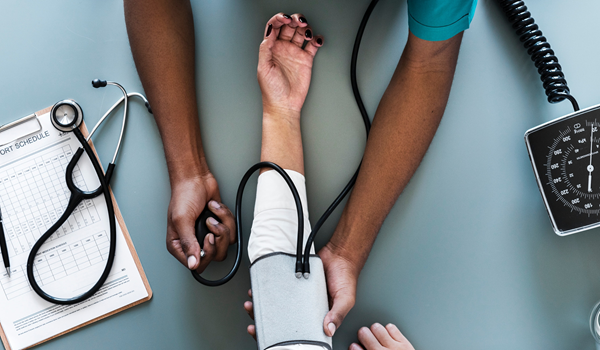Clinics and Services
Contraception
Emergency contraception
The sooner you act after having unprotected sex, the better. Emergency contraception is a way of preventing pregnancy after you have had sex without using contraception or when contraception has failed. If you take the emergency contraception (pill) or have an intrauterine device (coil) fitted within 5 days it will usually prevent pregnancy. Emergency contraception does not cause an abortion. Emergency contraception does not protect you from sexually transmitted infections. Please note the Emergency contraception (morning after pill) can be obtained from most Pharmacies.
Choice of contraception
“Where can I get contraception?” “Which method of contraception suits me?” “I’m under 16 – can I get contraception?” Whatever questions you have about getting and using contraception, this guide can help.
Who to book an appointment with
All our doctors can prescribe pills, rings, patches and injections. For further information please contact the Practice.
Please see below a full list of our comprehensive contraceptive services:
- Combined contraceptive pill (COCP)
- Progesterone only pill (POP)
- Contraceptive patch
- Mirena coil (IUS)
- Copper coil (IUD)
- Implant
- Injection
We also offer Emergency contraception.
Please contact your GP surgery to discuss your options. All contraceptive services are free via the NHS


Cervical Screening (Smear Test)
A cervical screening test (previously known as a smear test) is a method of detecting abnormal cells on the cervix. The cervix is the entrance to the womb from the vagina. Detecting and removing abnormal cervical cells can prevent cervical cancer.
Many women will attend regularly for their test, but for some it can be a real concern or even a source of embarrassment. This section provides information about the procedure and some supportive other links to help you to decide.
Most importantly, please contact our nurse team on 01202 697639 if you are due your cervical screening test but are worried or embarrassed about it.
Why it's offered?
Cervical screening is offered because it can detect abnormal cell changes in the cervix (the entrance to the womb from the vagina) that could potentially develop into cervical cancer.
Abnormal cells found during cervical screening often return to normal on their own, so waiting may be recommended. If more significant abnormalities are detected at an early stage, there's the option of having treatment to remove them before they have a chance to become cancerous.
Since the screening programme was introduced in the 1980s, the number of cervical cancer cases has decreased by about 7% each year.
It's estimated at least 2,000 cases of cervical cancer are prevented each year in the UK because of cervical screening.
When its offered?
Women aged 25 to 64 who are registered with a GP are automatically invited for cervical screening. This includes women who have had the HPV vaccination, as the vaccine doesn't protect against all types of HPV linked to cervical cancer so it doesn't guarantee complete protection against cervical cancer.
Invitation Letters
Women registered with a GP will receive a letter inviting them to make an appointment, along with further information about cervical screening. The letters should be sent out to women:
- aged 25 to 49 - every 3 years
- aged 50 to 64 - every 5 years
- over 65 - only women who have recently had abnormal tests Results
The results of your screening test will be sent to you in the post, with a copy sent to your GP.
Before you leave your screening, ask when your results are expected and how you'll receive them. In some cases, you may need to contact your GP or clinic to get your results.
The Cervical Screening Programme aims to notify people of their results within 14 days. Sometimes results may take longer. If your results haven't arrived within the time you were advised, you need to contact the GP practice where you were screened and ask them to follow up the results for you.
What is the procedure?
If you feel worried about going for cervical screening (a smear test), you are not alone. It may help to know as much as possible about what going for cervical screening is like. Ask someone you trust about their experience, speak with your doctor or nurse, or call the Jo's Cervical Cancer Trust Helpline on 0808 802 8000 for more support.
NHS Health Checks
If you are aged between 40-74 and you havent had a stroke, or dont already have heart disease, diabetes or kidney disease you can have a FREE NHS Health Check . The leaflets below explains more about the checks and how it can help us work with you to improve your health. Find out more about this national scheme here.
We will be writing to invite patients, but if you meet the criteria above and wish to make an appointment earlier please call reception on 01425 697639.


Stop Smoking Clinics
In general, patients who smoke when seen by their doctor if motivated to stop smoking are referred to the NHS Stop Smoking Service. They have literature and advice to help patients to stop smoking and can provide nicotine replacement therapy if appropriate. Recently a new drug has become available which is proving very useful and effective in helping patients stop and stay off cigarettes. If you are interested and motivated to give up smoking, then please discuss with your doctor.
Antenatal Care
Telling your GP and/or midwife promptly will help to make sure you receive maternity healthcare that takes into account all your health needs and preferences. You can book an appointment with your GP or directly with your midwife as soon as you know that you’re pregnant.
It’s best to see them as early as possible to obtain the information you need to have a healthy pregnancy, and because some tests, such as screening for sickle cell and thalassaemia should be done before you’re 10 weeks’ pregnant.
Midwife
The Midwife works with the doctor to give care to women having a baby, both before and for ten days after the baby is delivered. Antenatal appointments are now generally provided by the midwife at the hospital or satellite clinic. For further information please contact your Practice.
The role of the midwife
A midwife is a qualified nurse who has undertaken further training to provide and promote normal midwifery.
They help you to prepare for motherhood and promote good health for yourself and your baby by advising on the effects of drinking, smoking and good diet whilst you are pregnant.
The midwife guides you through your pregnancy and endeavours to detect any problems and make relevant referrals if necessary.
Your antenatal care
When you first learn that you’re pregnant, get in touch with a midwife or GP as soon as possible. Ideally this should be by 10 weeks of your pregnancy. Telling your GP and/or midwife promptly will help to make sure you receive maternity healthcare that takes into account all your health needs and preferences.

Flu Clinic
Flu vaccination is available every year on the NHS to help protect adults and children at risk of flu and its complications.
*Please note we are currently organising clinics for the new cohort of patients aged 50-64. If you fall within this catagory and have not already received your vaccination then the surgery will contact you shortly.
Flu can be unpleasant, but if you are otherwise healthy it will usually clear up on its own within a week.
However, flu can be more severe in certain people, such as:
- anyone aged 65 and over
- pregnant women
- children and adults with an underlying health condition (such as long-term heart or respiratory disease)
- children and adults with weakened immune systems
Anyone in a risk group is more likely to develop potentially serious complications of flu, such as pneumonia (a lung infection), so it's recommended that they have a flu vaccine every year to help protect them.
Who should get the flu vaccine?
The flu vaccine is routinely given on the NHS to:
- children aged 2 and 3
- children in reception class and school years 1, 2, 3, 4 and 5
- children aged 2 to 17 years at risk of flu
There are several types of flu vaccine:
- a live quadrivalent vaccine (LAIV), given as a nasal spray. This is for children and young people aged 2 to 17 years eligible for the flu vaccine
- a quadrivalent injected vaccine (QIVc or QIVe). This is for adults aged 18 and over but below the age of 65 who are at increased risk from flu because of a long-term health condition and for children 6 months and above in an eligible group who cannot receive the live vaccine
- an adjuvanted injected vaccine (aTIV). This is for people aged 65 and over (or you may also be given the QIVc vaccine)
If your child is aged between 6 months and 2 years old and is in a high-risk group for flu, they will be offered an injected flu vaccine as the nasal spray is not licensed for children under 2.
Find out more about who should have the flu vaccine.
65 and overs and the flu vaccine
You are eligible for the flu vaccine this year if you will be aged 65 and over on March 31 2020 - that is, you were born on or before March 31 1955. So, if you are currently 64 but will be 65 on March 31 2020, you do qualify.
Find out more about the flu vaccine for those aged 65 and over
How effective is the flu vaccine?
Flu vaccine is the best protection we have against an unpredictable virus that can cause unpleasant illness in children and severe illness and death among at-risk groups, including older people, pregnant women and those with an underlying medical health condition.
Studies have shown that the flu vaccine will help prevent you getting the flu. It won't stop all flu viruses and the level of protection may vary, so it's not a 100% guarantee that you'll be flu-free, but if you do get flu after vaccination it's likely to be milder and shorter-lived than it would otherwise have been.
There is also evidence to suggest that the flu vaccine can reduce your risk of having a stroke.
Over time, protection from the injected flu vaccine gradually decreases and flu strains often change. So new flu vaccines are produced each year, which is why people advised to have the flu vaccine need it every year too.
Read more about how the flu vaccine works
Flu vaccine side effects
Serious side effects of the injected flu vaccine are very rare. You may have a mild fever and aching muscles for a couple of days after having the vaccine, and your arm may be a bit sore where you were injected.
Side effects of the nasal spray vaccine may commonly include a runny or blocked nose, headache, tiredness and some loss of appetite.
Read more about the side effects of the flu vaccine
How safe is the flu vaccine?
The flu vaccines used in the national programme have a good safety record.
When to have a flu vaccine
The best time to have a flu vaccine is in the autumn, from the beginning of October to end of November, but don't worry if you've missed it, you can have the vaccine later in winter. Ask your GP or pharmacist.
e-Referral Service (ERS)
For some of our referrals, we use a system called e-Referral Service (ERS). This means that you are able to book your own appointment where and when it suits you. In order to do this, the Medical Secretary will upload your referral to the e-Referral database which creates a unique Booking Reference Number and a randomly generated password. We will post the information to you. You will then be able to book your appointment with this information either over the phone with the booking line or online using the web link stated on your booking information. Please be aware this is for an initial consultation and once the appointment has been booked, your referral is then triaged by a consultant/specialist who will access the urgency and may alter the appointment as necessary. If you do not receive any information, please do chase this and we can ensure the referral has been correctly processed.
Below is a list of referrals that usually go through the E-Referral system. If you are referred to any of these departments, please be aware that you may need to book your own appointment through the E-Referral service.
- Orthopaedics – Triage service
- Ear, Nose & Throat
- Rheumatology
- Gynaecology
- Urology
- Dermatology
- Cardiology
- Allergy Clinic
- Paediatrics
- Gastrointestinal & Liver Medicine
- Haematology
- Neurology
- Ophthalmology
- Respiratory
- Sleep Medicine
- Vascular Surgery
- General Surgery
- Nephrology
- Pain Management
- Endocrinology
If you have been referred for any other speciality, we will send the referral directly to the necessary hospital or department and you will hear from them with an appointment date and time.
Please do not hesitate to contact the Medical Secretaries if you require any more information or assistance.

Page created: 01 September 2020